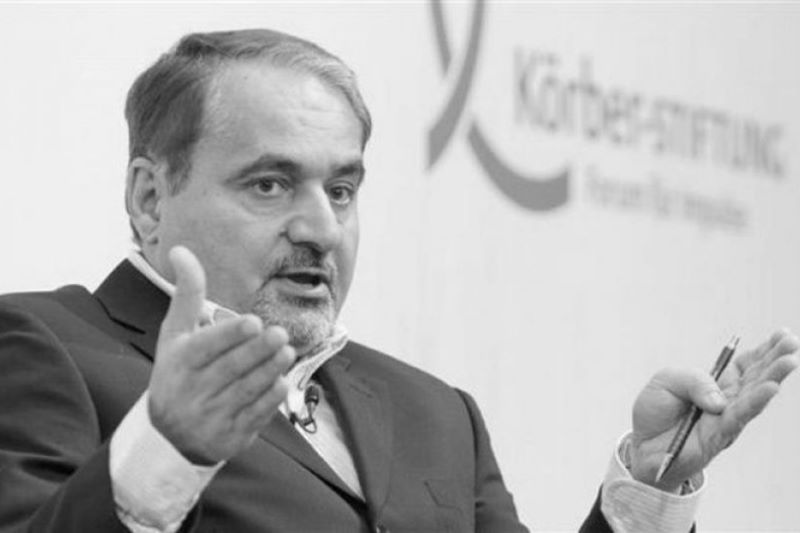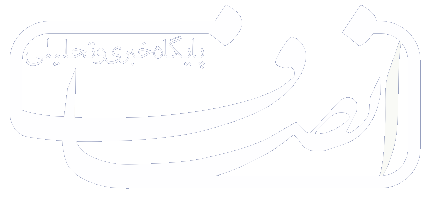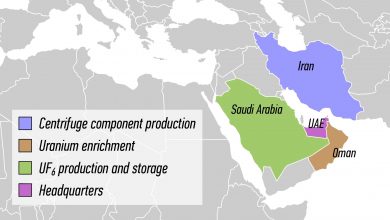۱۵ماه فرصت نهایی غرب برای یک توافق هستهای جدید با ایران | حسین موسویان

متن مقالهی حسین موسویان، دیپلمات سابق ایران و تحلیلگر مسائل بینالملل، که در مجلهی دانشمندان هستهای آمریکا منتشر شده را میتوانید در ادامه بخوانید:
هفته گذشته شورای حکام آژانس بینالمللی انرژی اتمی (IAEA) به دلیل عدم همکاری کامل ایران با آژانس دراجرای رژیم بازرسی برجام، به منظور شفافسازی و اعمال محدودیتها جهت اطمینان از عدم انحراف برنامه هسته ای ایران بسمت ساخت سلاحهای هستهای ، قطعنامه سرزنشی علیه ایران صادرکرد. اما واقعیت این است که برجام به دلایل بسیاری دیگری شکست خورده است، نه صرفا به دلیل ممانعت ایران از بازرسی های کامل.
هرچند قطعنامههای توبیخی توسط شورای حکام آژانس قانونی الزامآور نیستند، اما پیام سیاسی و دیپلماتیک قوی ارسال میکنند. نماینده ایران در سازمان ملل متحد اظهار داشت، “تصمیم کشورهای غربی عجولانه و غیرعاقلانه بود و بدون شک تأثیر منفی بر روند تعاملات دیپلماتیک و همکاری سازنده خواهد داشت.”
در شرایط فعلی ایران ممکن است فقط چند هفته تا داشتن مواد لازم برای چندین سلاح هستهای فاصله داشته باشد. رئیسجمهور و کابینه جدید ایران در طی دو ماه آینده تعیین خواهند شد. آمریکا و اروپا باید سعی کنند با دولت جدید ایران یک توافق هستهای جدید مذاکره کنند.
در نشست شورای حکام آژانس بینالمللی انرژی اتمی ، چین، ایران و روسیه بیانیه مشترکی صادر کردند و آمریکا را به دلیل “خروج غیرقانونی و یکجانبه” از توافق هستهای ۲۰۱۵ ایران (برجام) و اعمال “تحریمهای یکجانبه و غیرقانونی” علیه ایران سرزنش کردند. سه کشور اظهار داشتند، “اگر اجرای کامل برجام امروز برقرار بود، اکثریت سوالات موجود درباره برنامه هستهای صلحآمیز ایران بر اساس یک مبنای مورد قبول دو طرف برطرف بود وآژانس بین المللی انرژی اتمی نیز ابزارهای گستردهتری برای تأیید و نظارت داشت.” همچنین سه کشورآمادگی خود را برای احیاء برجام بر اساس متن اوت ۲۰۲۲ تأیید کردند و آمریکا و سه کشور اروپایی انگلیس، فرانسه و آلمان را به دلیل مسدود کردن پیشنویس توافق مذکور بهخاطر “ملاحظات سیاسی خودشان” سرزنش کردند.
اگرچه بحران هستهای با ایران در سال ۲۰۰۳ و بعد از اطلاع جهان از دسترسی ایران به توانمندی غنیسازی اورانیوم آغاز شد، اما اختلافات بین ایران و غرب در مسائل هستهای پس از انقلاب ۱۹۷۹ ادامه داشته است. اکنون، پس از ۴۵ سال اختلاف، هنوز یک فرصت نهایی برای حل مثبت این مسئله باقیمانده است.
پس از انقلاب ۱۹۷۹ ایران، قدرتهای غربی به رهبری آمریکا سیاستهای خود را نسبت به ایران تغییر دادند. در دوران حکومت شاه، ایران یک متحد منطقهای آمریکا بود و واشینگتن از اراده شاه به دستیابی به فناوری کامل هستهای حمایت میکرد. اما پس از انقلاب ۱۹۷۹ و بحران گروگانگیری، آمریکا ایران را به عنوان یک تهدید تلقی کرد و غرب را به ممنوعیت صادرات فناوری هستهای به ایران رهبری کرد که منجر به لغو تمامی توافقات هستهای غربی با ایران شد.
این استراتژی باعث شد ایران به سمت خودکفایی در فناوری هستهای حرکت کند. پس از اینکه ایران فناوری غنیسازی را به دست آورد، سیاست آمریکا در مورد ایران از “تکنولوژی هستهای صفر” به “غنیسازی اورانیوم صفر” تغییر کرد و حق ایران برای دسترسی به تکنولوژی هستهای صلحآمیز منهای غنیسازی و جداسازی پلوتونیوم را پذیرفت.
از سال ۲۰۰۳ تا ۲۰۱۳، مذاکرات بین ایران و قدرتهای جهانی در مورد برنامه غنیسازی ایران به شکست انجامید. سپس دولت اوباما سیاست آمریکا در مورد برنامه هسته ای ایران را از “غنیسازی صفر” به “سلاحهای هستهای صفر” تغییر داد که منجر به انعقاد برنامه جامع اقدام مشترک (برجام) در سال ۲۰۱۵ بین ایران و پنج عضو دائم شورای امنیت سازمان ملل به علاوه آلمان شد. این توافق توسط قطعنامه ۲۲۳۱ شورای امنیت سازمان ملل تأیید شد.
برجام جامعترین توافقنامه عدم اشاعه در تاریخ بود که ایران با پذیرش و رعایت بالاترین سطح شفافیت و بازرسیهای هستهای و پذیرش محدودیتهایی در برنامه هستهای خود، که فراتر از الزامات معمولی پیمان منع گسترش سلاحهای هستهای بود، موافقت کرد.
با این حال، در ماه مه ۲۰۱۸، علیرغم اینکه آژانس بینالمللی انرژی اتمی تأیید کرده بود که ایران به تمامی تعهدات خود کاملا عمل کرده است، ترامپ، آمریکا را از برجام خارج کرد، تحریمهای آمریکا علیه ایران را بازگرداند و ۱۵۰۰ تحریم جدید اضافه کرد. اروپا تصمیم گرفت با تحریمهای آمریکا همراهی کند. با این حال، چین فرصت یافت که سهم غرب در روابط اقتصادی با ایران را قبضه کند.
بایدن بعد از پیروزی در انتخابات ریاست جمهوری قصد داشت برجام را احیا کنند، اما در نهایت آمریکا و اروپا صدها تحریم جدید علیه ایران اعمال کردند. این امر باعث شد ایران نیز متقابلا با گسترش فعالیتهای غنیسازی خود؛ به غرب فشار وارد کند، از جمله تولید اورانیوم با غنای ۶۰ درصد نزدیک به درجه تسلیحاتی. نتیجه این شد در حالی که برجام ایران را یک سال از تولید مقدار کافی اورانیوم با درجه تسلیحاتی برای ساخت سلاح هستهای دور نگه داشته بود، اکنون تخمین زده میشود که ایران دو هفته تا این هدف فاصله دارد و عملاً به یک “کشوردرآستانه هستهای” تبدیل شده است مانند ژاپن.
تحریمهای هستهای غرب در ۴۵ سال گذشته صدها میلیارد، شاید تریلیونها دلار به اقتصاد ایران آسیب زده است. اما غرب به هدفش که ممانعت از توانمندی ایران در ساخت بمب هسته ای بود، نرسید. لذا استراتژی فشار و تحریم و نابودی برجام، نتیجه باخت-باخت برای هر دو طرف، ایران و غرب، در پی داشته است. واقعیت این است که در شرایط فعلی هم نه غرب تمایلی به جبران خسارات اقتصادی ایران دارد و نه ایران این اهرم فشار و امتیاز را به صورت رایگان رها خواهد کرد.
بر اساس قطعنامه ۲۲۳۱ شورای امنیت سازمان ملل، شورای امنیت پرونده هستهای ایران را تا اکتبر ۲۰۲۵ باید بسته شود. قبل از آن زمان، اروپا میتواند از مکانیسم اسنپبک استفاده کند تا تمامی قطعنامههای شورای امنیت سازمان ملل را علیه ایران بازگردانده و تحریمهای بین المللی مجددا اعمال شود. دراینصورت، پاسخ محتمل ایران به چنین اقدامی، خروج کامل از برجام و تعلیق عضویت خود در پیمان منع گسترش سلاحهای هستهای به عنوان یک کشور غیرهستهای خواهد بود. اگر اسرائیل ویا ایالات متحده به تاسیسات هستهای ایران حمله کنند، ممکن است ایران بسمت ساخت سلاح هسته ای برود و وضعیت بین ایران و قدرتهای جهانی به وضعیتی مشابه با کره شمالی تبدیل شود.
بنابراین، ایالات متحده و اتحادیه اروپا یک پنجره ۱۵ ماهه برای انتخاب بین دو گزینه دارند:
الف)ایران به یک کشور دارای سلاح هستهای مانند کره شمالی تبدیل شود، یا
ب) ایران به عنوان یک کشور در آستانه هستهای مانند ژاپن باقی بماند.
برجام دو رکن اساسی دارد.
الف) یکی تعهدات دائمی ایران برای پذیرش شفافیت و بازرسیهای جامع توسط آژانس بینالمللی انرژی اتمی از جمله اجرای پروتکل الحاقی است که به آژانس اجازه میدهد هر تأسیسات هسته ای مشکوکی را بازرسی کند.
ب) مجموعه دوم شامل محدودیتهای زمانی است، مانند عدم غنیسازی اورانیوم بالای ۵ ٪ توسط ایران که در هرصورت این نوع محدودیتها عمدتاً تا سال ۲۰۳۰ منقضی میشوند.
بنابراین قدرتهای جهانی همچنان فرصت دارند با ایران “توافق هستهای جدید” بر این مبنای جدید داشته باشند: لغو تحریمهای هستهای در ازای تعهد کامل ایران به اجرای اقدامات شفافسازی جامع در برجام، که به آژانس امکان خواهد داد تا به طور کامل فعالیتهای هستهای ایران را نظارت کند. این بهترین گزینه برای اطمینان از صلح آمیز ماندن برنامه هسته ای ایران است.
The West has a 15-month opportunity for a new nuclear deal with Iran that precludes an Iranian Bomb
By Seyed Hossein Mousavian | June 11, 2024
Russian Foreign Minister Sergei Lavrov (right) expressed support for “the soonest possible resumption of the full implementation” of the Iran nuclear deal after meeting with Iranian Foreign Affairs Minister Hossein Amir-Abdollahian (left) in Moscow on March 15, 2022. Credit: Russian Ministry of Foreign Affairs
The Board of Governors of the International Atomic Energy Agency (IAEA) voted last week to censure Iran for failing to cooperate fully in the inspection regime set up under the 2015 nuclear deal to make Iran’s program more transparent and to set limits that would prevent redirection of nuclear material to make weapons. But the deal has failed for many reasons, not just Iran’s interference with IAEA inspectors.
Censure resolutions by the IAEA board are not legally binding but send a strong political and diplomatic message. The representative of Iran’s mission to the United Nations stated, “The decision of the Western countries was hasty and unwise, and it will undoubtedly have a detrimental impact on the process of diplomatic engagement and constructive cooperation.” Today, Iran may be only weeks away from having material for several nuclear weapons. The new President and cabinet of Iran will be determined within the next two months.
The United States and Europe should try to negotiate a new nuclear deal with Iran’s new administration.
At the IAEA board meeting, China, Iran, and Russia issued a joint statement blaming the US for its “unlawful and unilateral withdrawal” from the 2015 Iran nuclear deal (official known as the Joint Comprehensive Plan of Action, or JCPOA) and the imposition of “unilateral and illegal sanctions” against Iran. The three countries wrote that “[s]hould the full implementation of the JCPOA be in place today, it would have alleviated the overwhelming majority of existing questions regarding Iran’s peaceful nuclear program on a mutually accepted basis. The IAEA Secretariat too would have had broader verification and monitoring means.”
The three countries confirmed their readiness to restore the agreement based on the text of a draft agreement initially circulated in August 2022 by European Union foreign policy chief Josep Borrell and blamed the United States and the European signatories to the 2015 deal for blocking the draft for “the sake of their own political considerations”.
The nuclear crisis with Iran began in 2003 when the world became aware that Iran was building a uranium enrichment plant. But the divergence between Iran and the West on nuclear issues started after the 1979 revolution in Iran. Now, 45 years later, a last chance is still open for a positive resolution.
During the reign of Shah Mohammad Reza Pahlavi, Iran was a regional ally of the United States, which supported the Shah’s interest in acquiring nuclear technology. After the 1979 revolution and that deposed the Shah and an ensuing crisis, in which US diplomats were held hostage for ۴۴۴ days, however, the United States saw Iran as a threat and led the West in a ban on nuclear technology exports to Iran, a move that resulted in the cancelation of all Western nuclear agreements with Iran.
This strategy led Iran to move towards self-sufficiency in nuclear technology. After Iran acquired enrichment technology, America’s policy shifted from “zero nuclear technology” to “zero uranium enrichment,” accepting Iran’s right to access peaceful nuclear technology excluding enrichment and plutonium separation.
From 2003 to 2013, negotiations between Iran and global powers regarding Iran’s enrichment program ended in failure. Then the Obama Administration shifted U.S. policy from “zero enrichment” to “zero nuclear weapons,” leading to the conclusion of the JCPOA in 2015 between Iran and five permanent members of the UN Security Council plus Germany. The agreement was approved by UN Security Council Resolution 2231.
The JCPOA was the most comprehensive nonproliferation agreement in history, with Iran accepting and adhering to the highest level of nuclear transparency and inspections and accepting limitations in its nuclear program that went well beyond the Non-Proliferation Treaty’s requirements
In May 2018, however, even though the IAEA had certified that Iran was in compliance with all its commitments, President Trump withdrew the United States from the agreement, restored US sanctions on Iran, and added 1,500 new ones. Europe decided to comply with US sanctions. China saw an opportunity, however, and took over the economic relationships with Iran that the West had abandoned.
After President Biden took office in 2021, he and the European Union tried to revive the JCPOA, but ultimately they imposed hundreds of new sanctions. This led Iran to impose its own form of pressure by expanding it enrichment activities to include enriching uranium to 60 percent uranium 235—a level that is near weapon-grade. The result of the standoff are dangerous: Although the JCPOA had kept Iran at least a year away from producing enough weapon-grade for a first nuclear weapon, Tehran is now estimated to be just two weeks away from producing that amount of fissile material, effectively becoming a “nuclear threshold state” like Japan.
Western nuclear sanctions over the past 45 years have caused hundreds of billions, perhaps trillions, of dollars in damage to Iran’s economy. Meanwhile, the West has not achieved its primary goal—preventing Iran from attaining the capability to make a nuclear weapon quickly. The continuing pressure game in regard to Iran’s nuclear program has been a lose-lose strategy for both Iran and the West. The reality: The West is unwilling to compensate for Iran’s economic losses. Iran will not relinquish the leverage its nuclear latency provides for free.
According to Resolution 2231, the UN Security Council will close Iran’s nuclear case by October 2025. Before that time, Europe could utilize the snapback mechanism to reimpose all UN Security Council resolutions against Iran. Iran’s most likely response, however, would be a complete withdrawal from the JCPOA and suspension of its membership in the Non-Proliferation Treaty as a non-nuclear-weapon state. If, in such a situation, Israel and/or the United States were to attack Iran’s nuclear facilities, Iran could respond with nuclear weaponization. The standoff between Iran and the global powers would come to resemble the situation with North Korea.
The United States and the EU therefore have a 15-month window to choose between two options: Iran as a nuclear-armed state like North Korea, or Iran as a nuclear threshold state ala Japan.
The JCPOA has two sets of pillars. One is Iran’s permanent commitments to accepting IAEA comprehensive inspection and transparency measures, including the Additional Protocol, which allows the IAEA to inspect any suspect facility. The second set of pillars are “sunset” limitations—including prohibitions against Iran enriching uranium to above five percent uranium 235—that will mostly expire in 2030.
The global powers still have an opportunity to engage Iran in a “New Nuclear Deal”: lifting nuclear sanctions in exchange for Iran’s full and permanent commitment to implementing comprehensive transparency measures in the JCPOA, which would grant the agency full visibility into Iran’s nuclear activities. It is the best option for staving off the Iranian Bomb.
Ambassador (Ret.) Seyed Hossein Mousavian is a Middle East security and nuclear policy specialist at Princeton University and a former spokesman for Iran’s nuclear negotiators. He is the author of many books including: The Iranian Nuclear Crisis: A Memoir, “Iran and the United States: An Insider’s view on the Failed Past and the Road to Peace; A Middle East Free of Weapons of Mass Destruction and “A New Structure for Security, Peace, and Cooperation in the Persian Gulf”.
انتهای پیام





